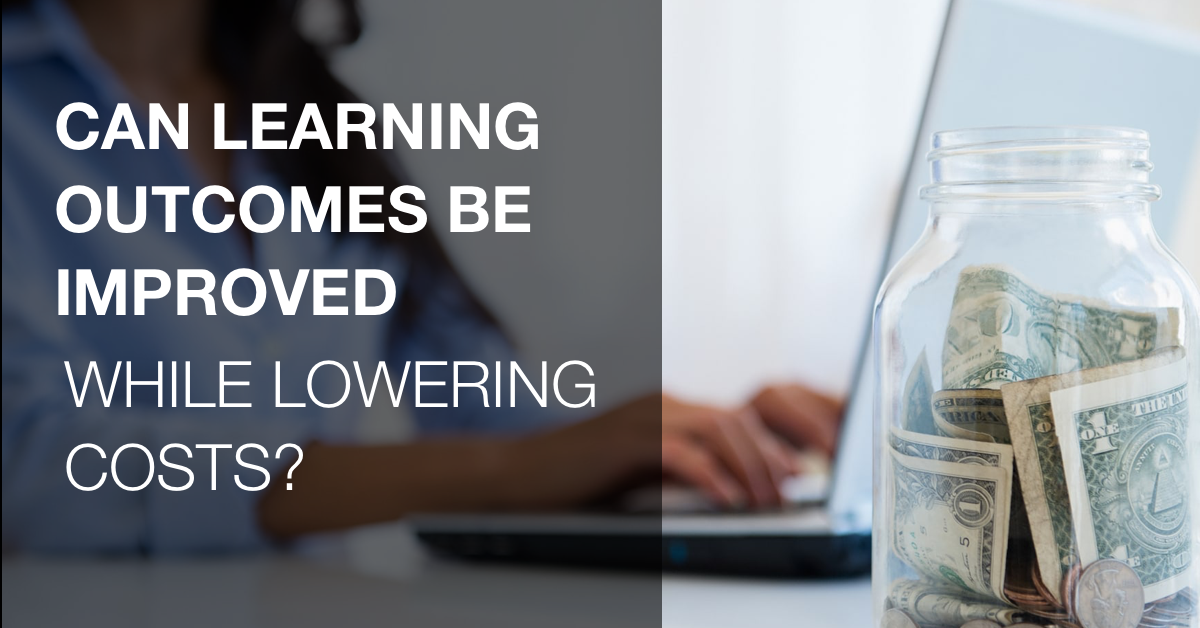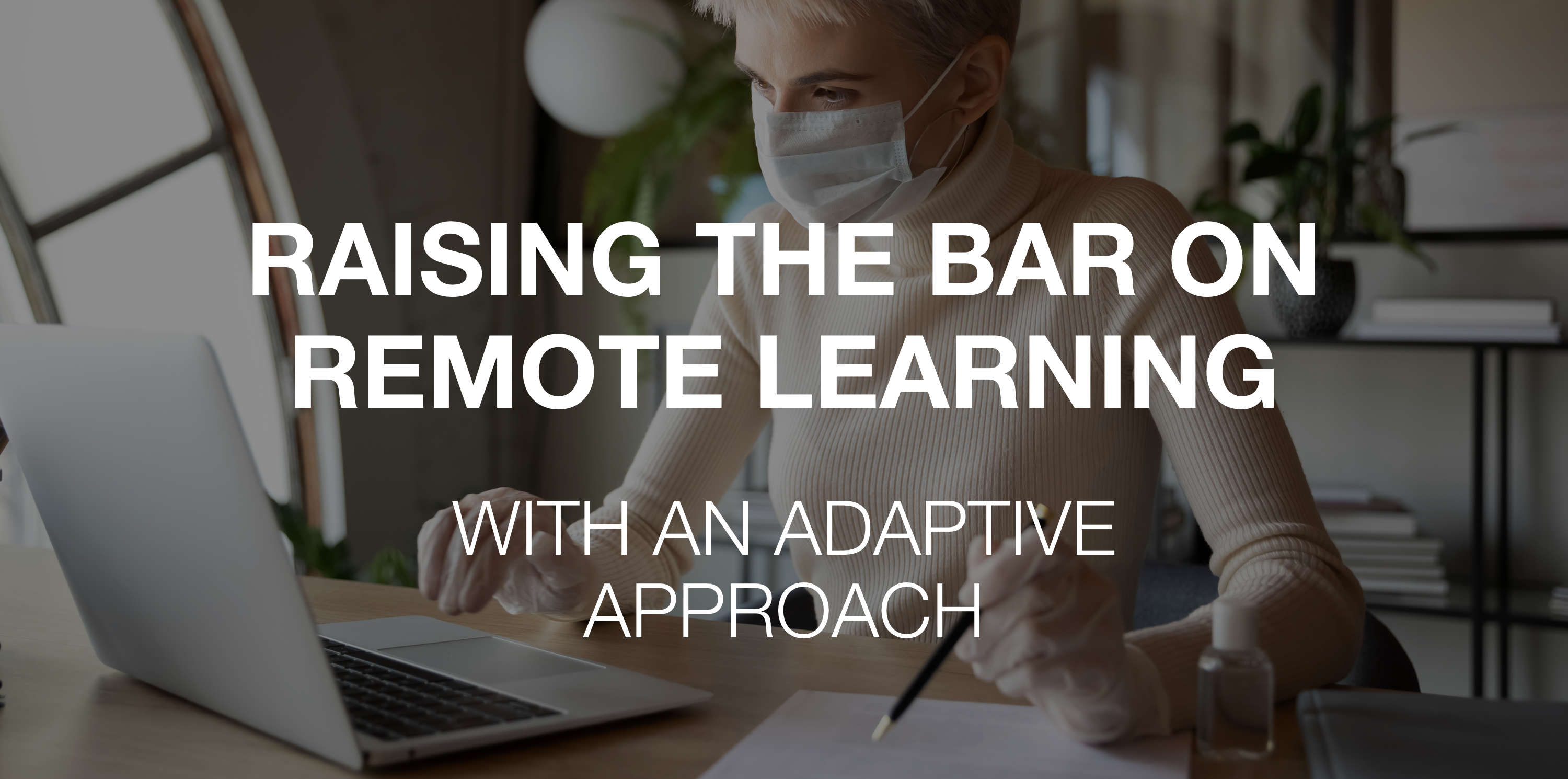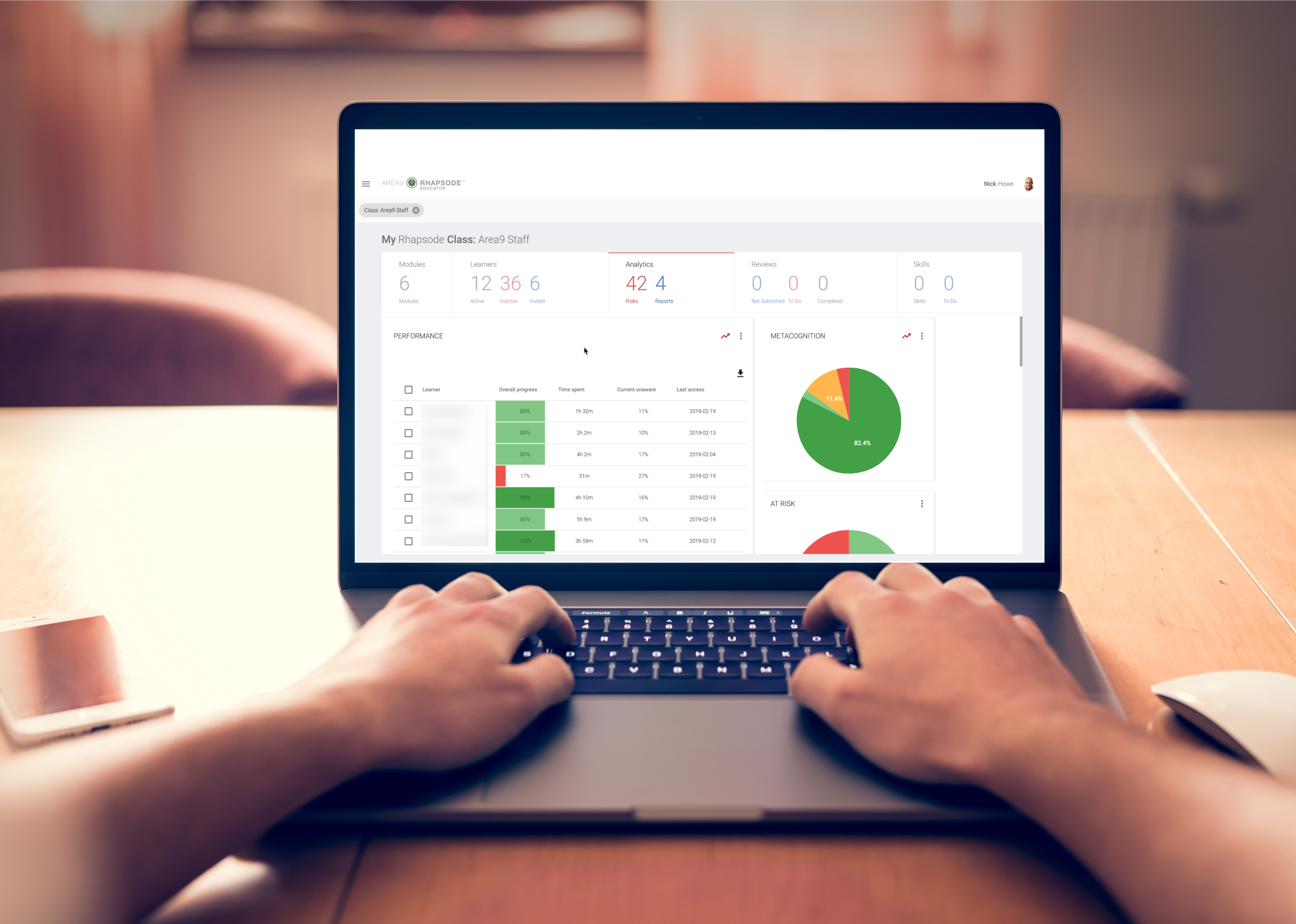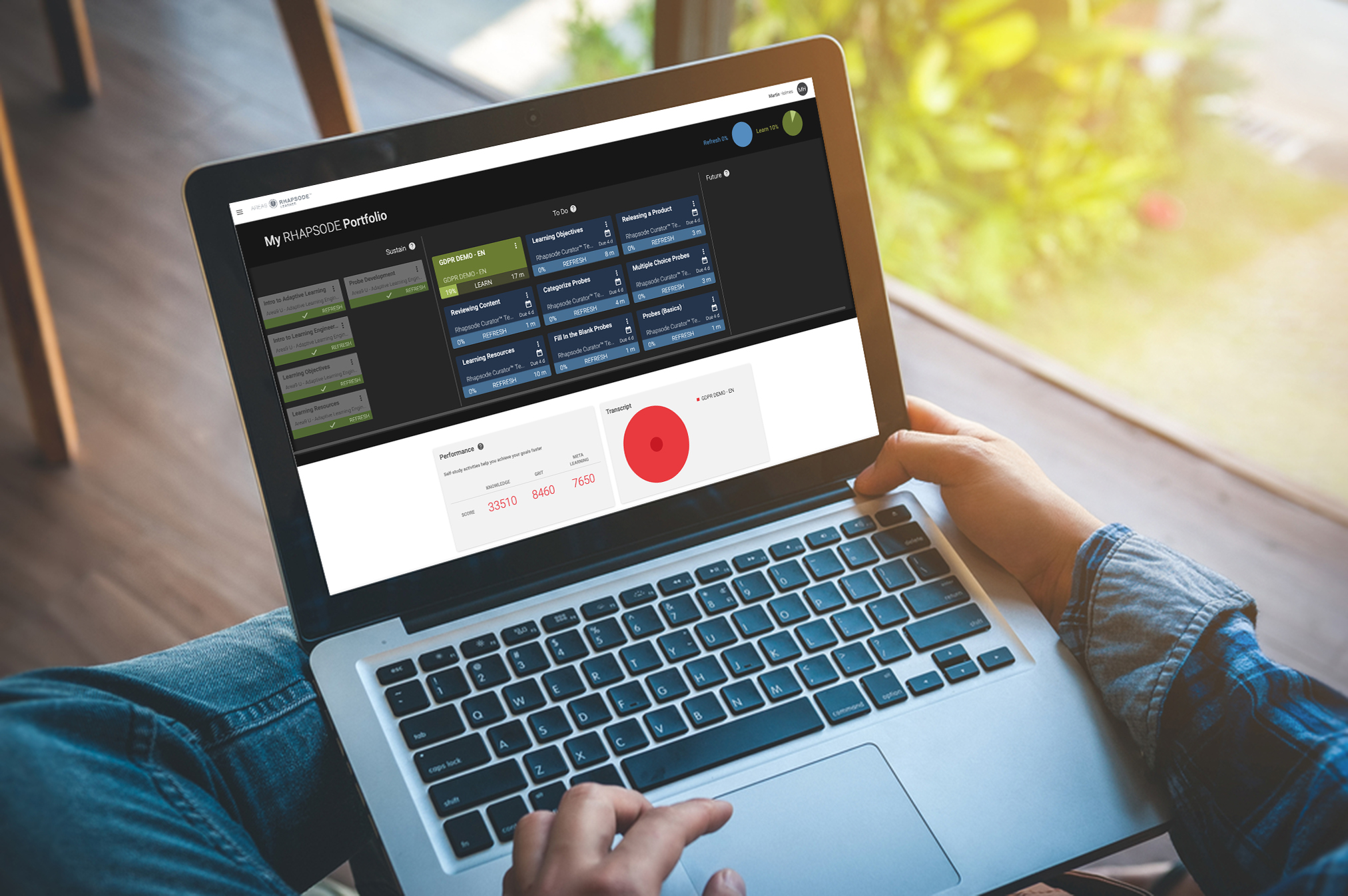How long does it take to learn a programming language? Obviously it depends, but estimates range from three to six months. How, then, do Area9 programmers become productive in as little as two to four weeks? The secret, as we’ve often said, is personalization.
Nick Howe
Recent Posts
An Adaptive Approach to Computer Programming Training: Combining Theory and Practice to Achieve Competence
Topics: Adaptive Learning, Reskilling, Area9 Technology, L&D, Software Development, programming
Can Learning Outcomes be Improved While Lowering Costs?
Can Learning Outcomes Be Improved While Lowering Costs?
It is fairly easy to lower learning costs: create and deliver fewer courses, and/or move classroom courses online. Maybe even dump formal training altogether and switch to “user generated content.” But is it possible to lower costs without negatively impacting learning and business outcomes—and perhaps even improving them? As COVID-19 continues to escalate in the U.S., this question is more important than ever. In this blog, I’ll discuss how corporate learning and development (L&D) can answer the CFO’s call to “do more with less.”
Topics: Adaptive Learning, Corporate E-Learning, Area9 Technology, L&D
Retraining Will Be Crucial in Aviation’s ‘New Normal’
As the global airline industry comes back from the pandemic, staffing could become a challenge—particularly if the ramp-up in flight capacity happens quickly. The goal across every airline will be to align rehiring with the pace of the rebound, so as people are rehired, they are also retrained quickly. Reassigning and reskilling, as well as training in new safety and operational protocols, will require adaptive learning to get people up to speed efficiently and effectively.
Topics: Adaptive Learning, Aviation, Reskilling, Area9 Technology
Raising the Bar on Remote Learning with an Adaptive Approach
The COVID-19 pandemic has disrupted the business landscape, with lasting changes in the ways in which people work and learn. As Microsoft President Brad Smith said in a recent CNBC interview, “I think there is a greater acceptance of almost remote everything.” Hand-in-hand with widespread remote working is the need for more effective remote learning.
Topics: Adaptive Learning, Corporate E-Learning, Area9 Technology, L&D, Learning Analytics
Another Conversation with Christopher Lind of Learning Tech Talks
Topics: Corporate E-Learning, Sales Training, Reports & Analytics, Learning Analytics
Better L&D Data and Analytics: Adaptive Learning Platforms Hold the Key
Corporate learning and development (L&D) can take a significant step forward toward meaningful return on investment (ROI) measures by moving beyond mere transactional data of how many people take a course. Thanks to adaptive learning platforms and the data they automatically generate, it’s possible to assess improvements in proficiency, competence and confidence without the additional effort usually associated with measurement.
Topics: Reports & Analytics, Learning Analytics
A conversation with Christopher Lind of Learning Tech Talks
Back in the middle of October I sat down with Christopher Lind as part of his Learning Tech Talks. In this wide ranging discussion we dove into the state of the learning industry and the role that adaptive learning can and will play in dramatically improving learning outcomes for everyone.
Topics: Adaptive Learning, Corporate E-Learning, Unconscious Incompetence, L&D, AI, Learning Analytics
The ‘Year of Data’: Donald H. Taylor Survey Spotlights Personalization, AI, and Learning Analytics
The three hottest topics in Donald H. Taylor’s L&D Global Sentiment Survey 2019 are personalization, artificial intelligence (AI), and learning analytics. Although these are separate topics on the survey, they come together in one place: adaptive learning, in the application of AI to learning data to achieve personalized outcomes.
Topics: Adaptive Learning, Area9 Technology, L&D, AI, Learning Analytics
Pt 2. Incorporating “Refresh” into Your Learning Ecosystem: Ensuring that Knowledge Learned Is Knowledge Retained
The traditional assumption that completing a course generates knowledge and skills that are retained long-term and can be built upon is flawed. The majority of what is studied never makes the transition to long-term memory. Building and maintaining proficiency over time requires “refreshing” by revisiting the material in targeted ways.
Topics: Adaptive Learning, Unconscious Incompetence, Refresh
Pt 1.“Refresh” As an Adaptive Learning Strategy: Gauging What Learners Learn—and How Much They Forget
Even the best instructional strategy will fail if it ignores one basic fact: humans are really good at forgetting things. Good news: reinforcement through deliberate practice solves this problem, and adaptive learning does this automatically.
Adaptive Learning: Paying the “Technical Debt” of Ineffective L&D
A focus on quick fixes results in learning and development (L&D) “technical debt” that is too great for companies to bear today, given greater demands to build proficiencies throughout their workforce. By understanding what cutting-edge adaptive learning looks like, companies can take the first step toward paying down technical debt and improving L&D with a truly personalized approach.
Topics: Adaptive Learning, 4th Industrial Revolution, Reskilling
Leveling the Playing Field with Adaptive Learning to Reskill Workers
To level the playing field of future job opportunities, all workers must be reskilled to meet the ever-increasing demands of the technology-enabled workplace. This requires the “rulebook” for learning to be rewritten, no longer assuming a distribution curve in performance, but rather seeing everyone as capable of achieving proficiency and mastery, provided they are given the targeted support and time they need.
Topics: Adaptive Learning, 4th Industrial Revolution, Reskilling

















